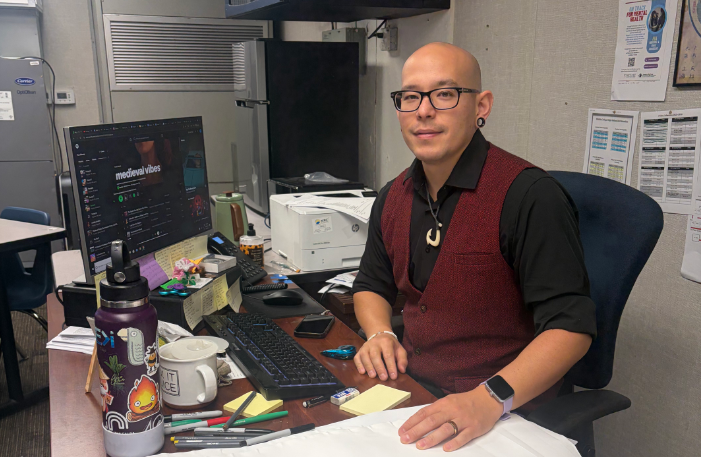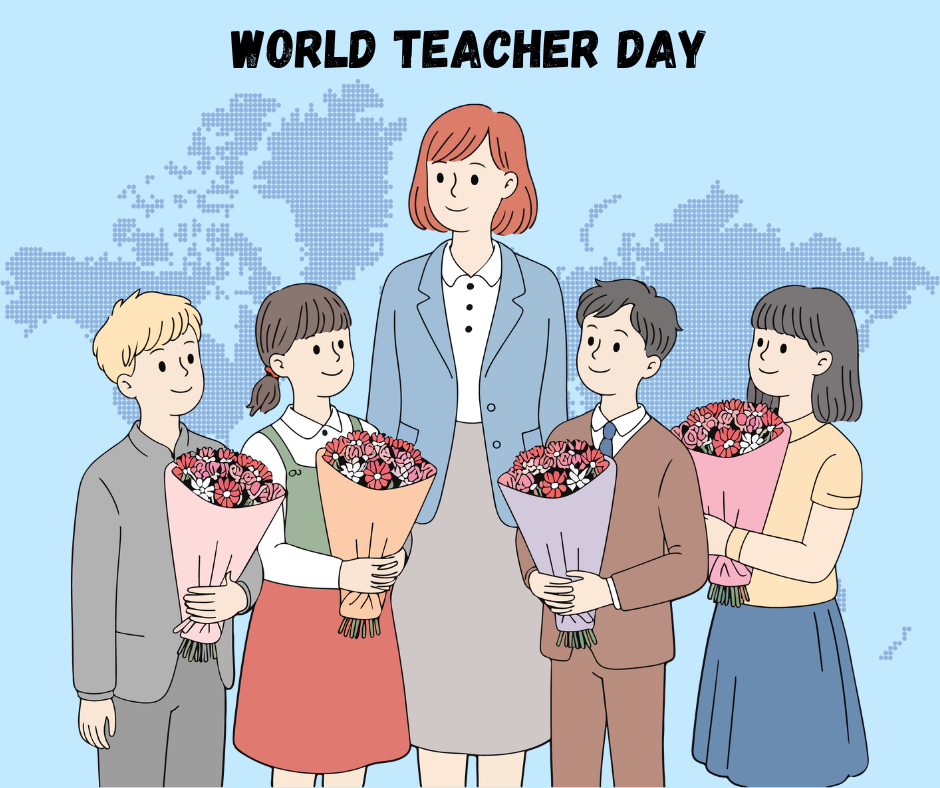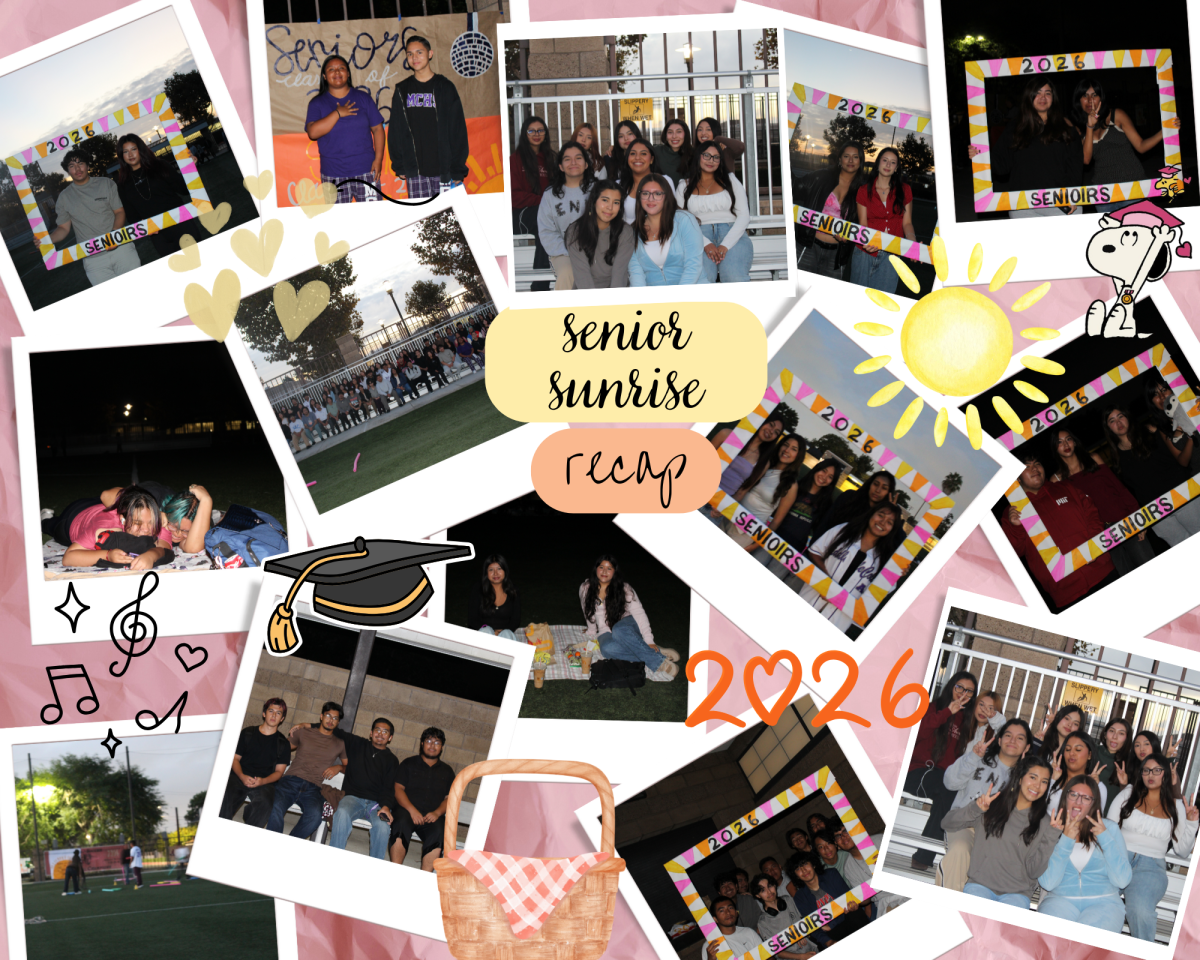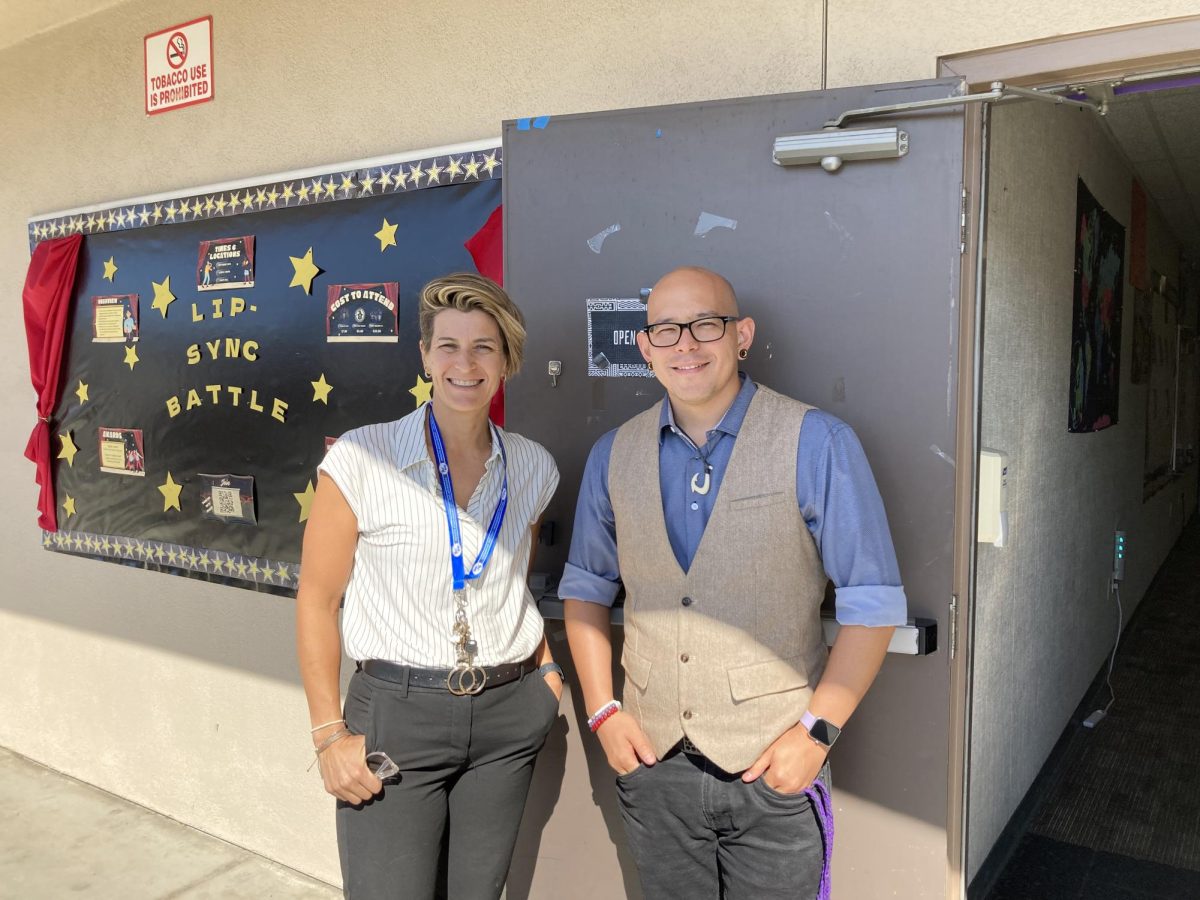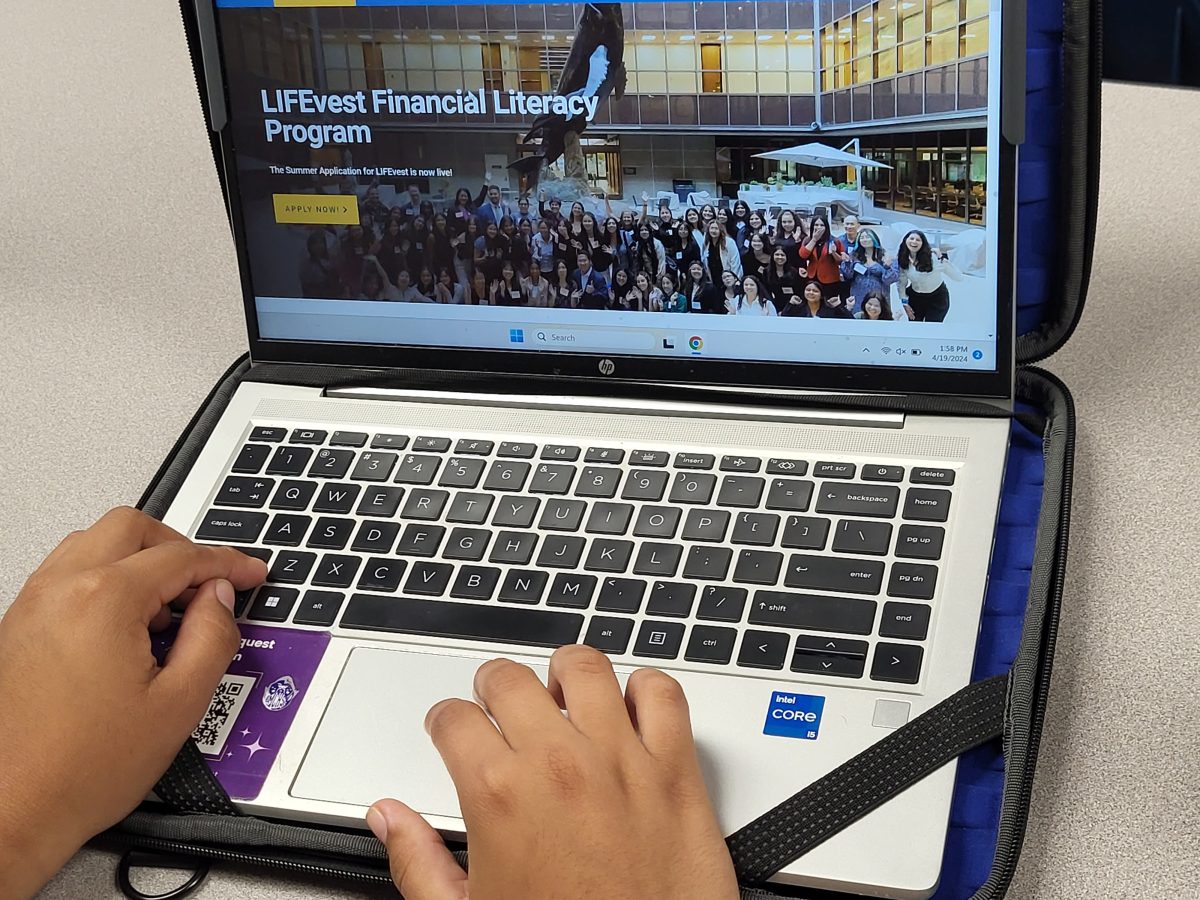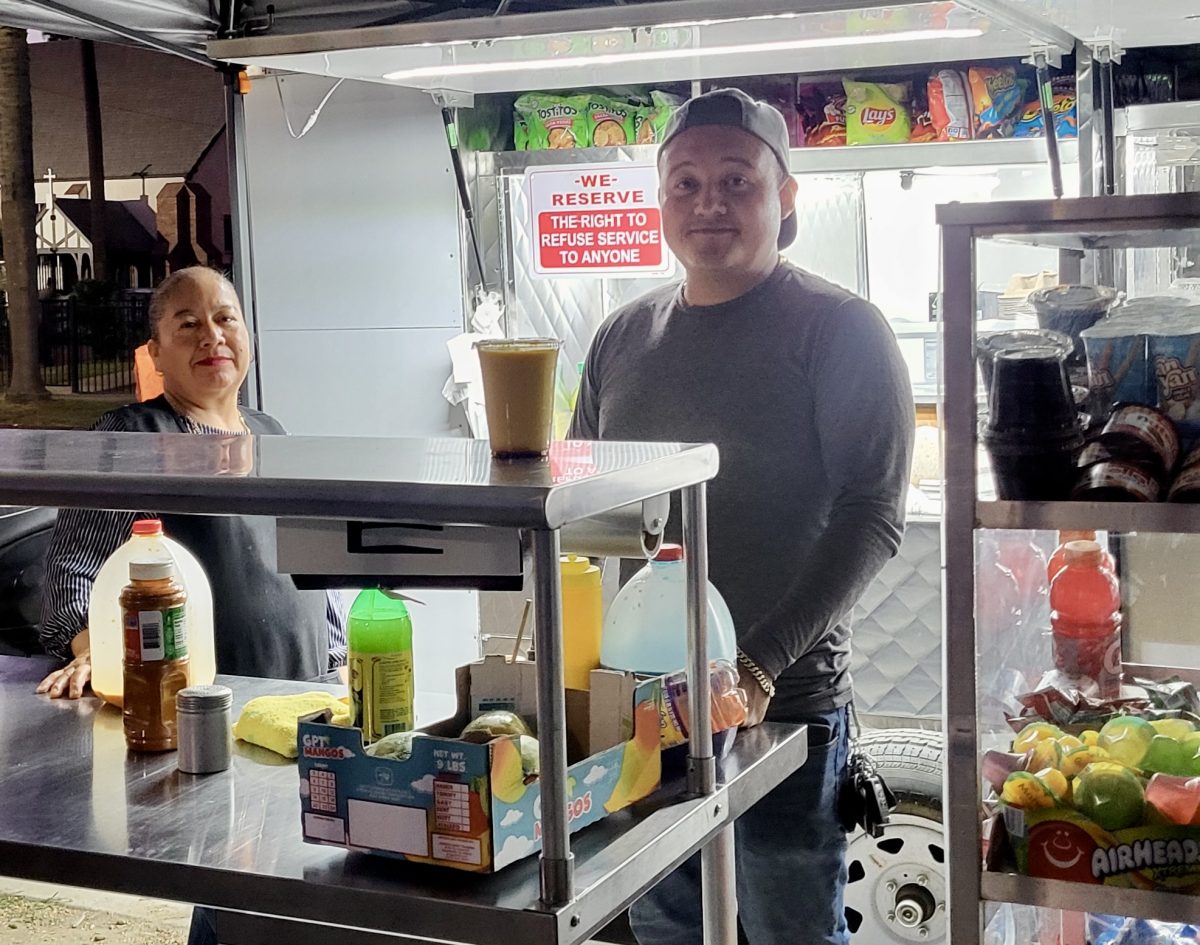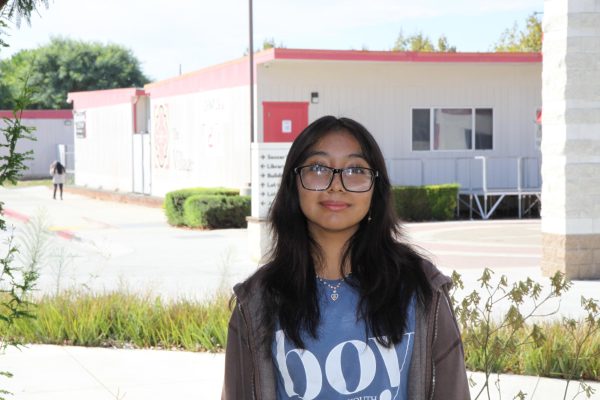In the midst of stressful nights and anxiety, hitting the ‘submit’ button on a pre-college program application brings a mix of relief and excitement. It signals the end of hard work and the beginning of exciting new opportunities. This feeling is a shared experience among students who have successfully navigated their application process.
As early as 8th grade, students are potentially able to embark on different opportunities. This allows them to gain and refine different skills, making them a competitive applicant for college applications. These programs are not limited to one subject or topic, but can focus on various things. What makes these programs stand out compared to regular classes is the main focus of them. They are usually held by universities or institutions and can be offered online or in an in person environment. They create an educational experience, assisting students with preparation for college.
Sophomore David Ramirez is a 2023 LIFEvest alumni. He describes the residential program located at University of California Irvine.
“LIFEVest is a wonderful experience for networking and learning about economics. The program itself is a week-long residential program in which you sleep, eat, and live in the dormitory. I gained a concept of how college life is while also a lot more about finance and investing safely,” Ramirez said.
Ramirez talks about the application process for the program. He finds this program to be great and goes on to recommend this to other students looking into learning about financial management.
“The only pre-college program I’ve really applied to has been LIFEVest so far. The application process wasn’t all that hard because there wasn’t all that much of an expectation to have extracurriculars/leadership prior to it,” Ramirez said.
LIFEvest 2023 was intended for 8th through 12th graders. On the other hand this year’s program will be hosted for 9th and 10th graders. The application process consists of two questions, one regarding the person’s interest in applying to the program, and another one wanting to know more about their extracurricular programs.
Sophomore Rodrigo Espinoza is an aspiring mechanical engineer who reflects upon what he has done to get help to reach his goals.
“I applied to Simon Scholars, Nicholas Academic Center, and CyberForward Cyber Security. I was able to get accepted to CyberForward and landed interviews for the other programs,” Espinoza said.
Simon Scholars is a 6 year-long program, following high school juniors all the way through four years of college. It is directed towards underserved students who have a strong desire to flourish academically and socially. Meanwhile, the Nicholas Academic Center is a program stationed in three different locations around Santa Ana, providing 8th-12th grade students the opportunity to succeed in school by offering different resources ranging from mentors to academic guidance. CyberForward High School Cyber Security Program offers high school students the opportunity to participate in a cybersecurity program, thus further opening new work opportunities.
“The application process for Simon Scholars and Nicholas Academic Center both included filling out general information, contact information, and inputting tax information since they are for low income families. For CyberForward, it was just general information and answering one essay question,” Espinoza said.
Both Simon Scholars and Nicholas Academic Center are programs with goals to help serve first-generation students who have faced economical challenges. They offer different resources like scholarships and mentorship to ensure these students become college bound, and get the help they may not have otherwise. Application requirements such as sharing tax information and answering certain questions allow the programs whether students fit into the program. Thus, most of the time, programs’ eligibility criteria are reflected in the questions students are asked.
“I would definitely recommend the program to anybody who’s looking to really put themselves out there,” Ramirez said.
Many programs such as the ones that Espinoza applied to, offer services that allow students to flourish and prepare for college. This truly creates change within the students who have gone through programs. Simon Scholars offers individual support through mentorship and guidance, helping students complete their college applications and answer personal statement/personal guidance questions. The NAC program offers a variety of workshops and services from academic tutoring sessions to college mentoring. These programs serve as financial support to graduating high school students by giving them up from $2,000-$16,000 in scholarship money.
Programs to Apply
These are only a few of the pre-college programs that students have applied and participated in. If interested in taking part in the college preparatory journey, here are a few other programs that offer a learning and helpful experience.
Senator Tom Umberg’s Young Senators Program is for high school students residing within Senate District 34 who have a strong desire to make change in their community. Through different workshops, networking events, and engaging activities, students are exposed to the process of creating a bill. The application process includes short answers of the student’s volunteer, leadership experiences, and interest in public policy. Ultimately, it also asks for a letter of recommendation.
Congressman Lou Correa’s Young Congressional Leaders program is open to high school students in California’s 46th District to help refine leadership and give new networking opportunities. This program only requires filling out a google form on basic information of the students, ex. name, email address, and grade level.
Pomona College Academy for Youth Success, also known as PAYS, is a great program for freshmen. They are able to apply for their freshman year, and once selected into the program, it runs for three consecutive years. The application process is pretty lengthy but makes it worth the field trips, residential programs and workshops offered at no cost. There are two mandatory essays to answer, with two optional ones, a file of their transcripts is needed along with two letters of recommendation. Students who meet the following criteria are taken into consideration, first-generation student, low-income, and geometry as current math level.

